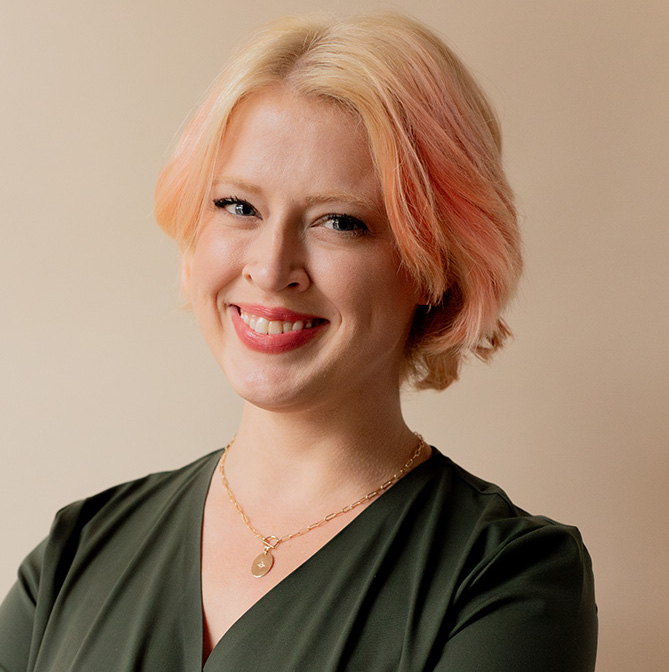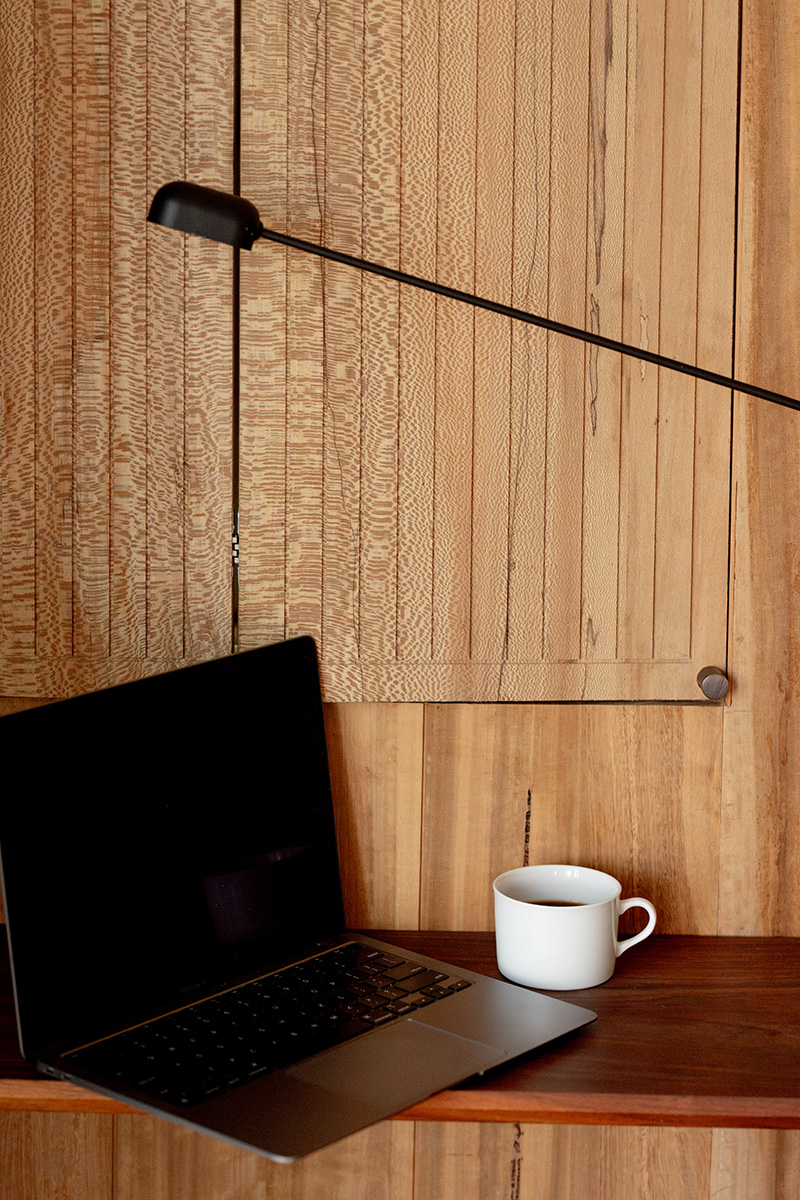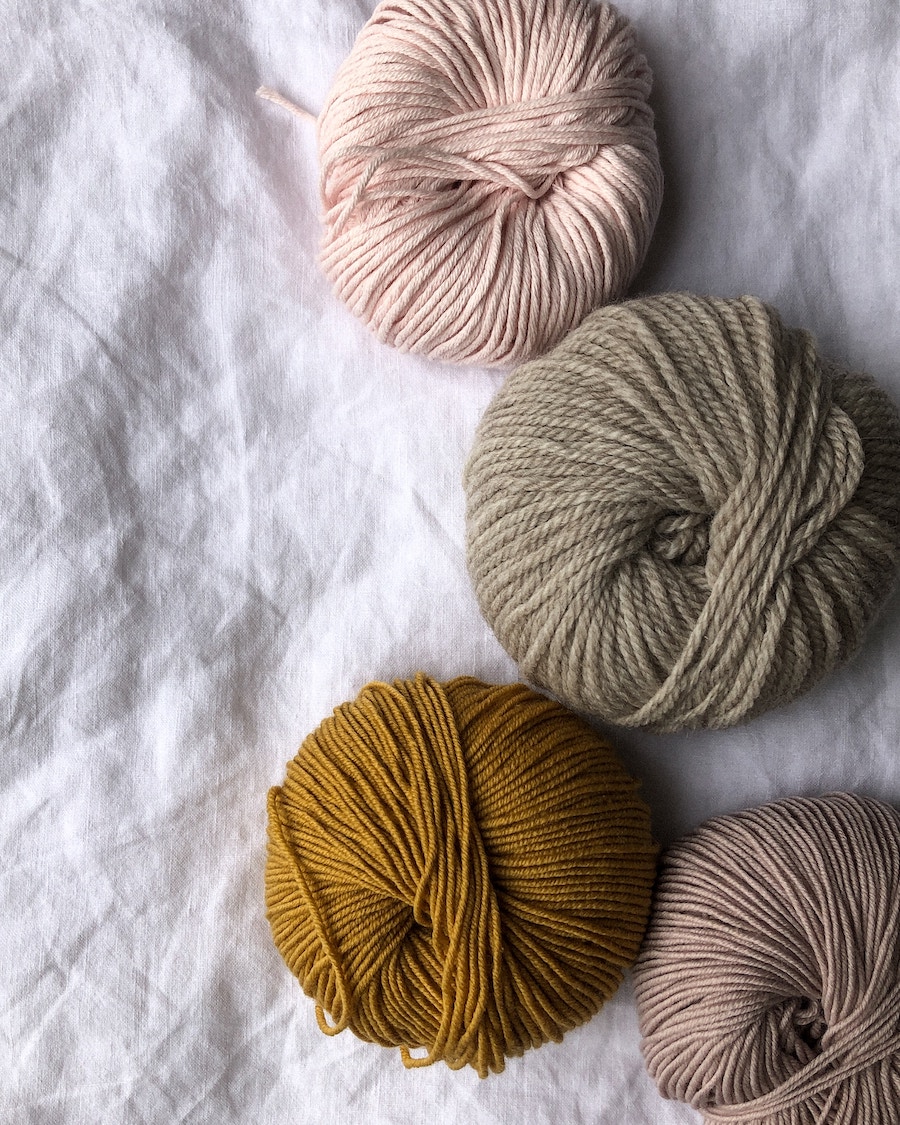
How Crocheting Is Bringing Me Back To Myself
I pull at the corners of each granny square, looking for the clumsy tie-offs I had fastened half a lifetime ago. The afghan is asymmetrical, and the yarn is the color of lentil soup. Deconstruction doesn’t take long, and before I know it, the blanket I crocheted for my late grandfather is back to its original state—five sad beige skeins of yarn.
I am starting over.
I made the blanket when I was 15, from clearance Red Heart yarn I found at the local Walmart. I diligently crocheted a blanket for my surly grandfather, who had always teased me about my own blankie. When it was finished, in all its imperfections, he told everyone who would listen about how it was the warmest blanket he’s ever had. It sat folded on his bed for many years before he died in 2019.
Back then I was fortunate that grief was nothing but a rumbling thunderstorm in the distance. Now 20 years and several storms later, the clouds have rolled in like never before.
In addition to the anxiety and depression of the past several years, I’m also mourning the loss—or at least the transition—of an important relationship in my life. There’s hope, and there’s also deep uncertainty. It’s been one of the most difficult personal years I’ve ever had (sorry 2020), and I’ve never felt so unraveled.
Self-care has fallen by the wayside, and I now need low-energy ways to feel human again. Instead of disappearing into a video game, as I’m prone to do, something has been calling me to reach for my purple Caboodle of crochet supplies and unravel a blanket that has fulfilled its purpose. I’m turning it into something I’ll actually use—a sweater for when it (hopefully) cools down in Los Angeles.
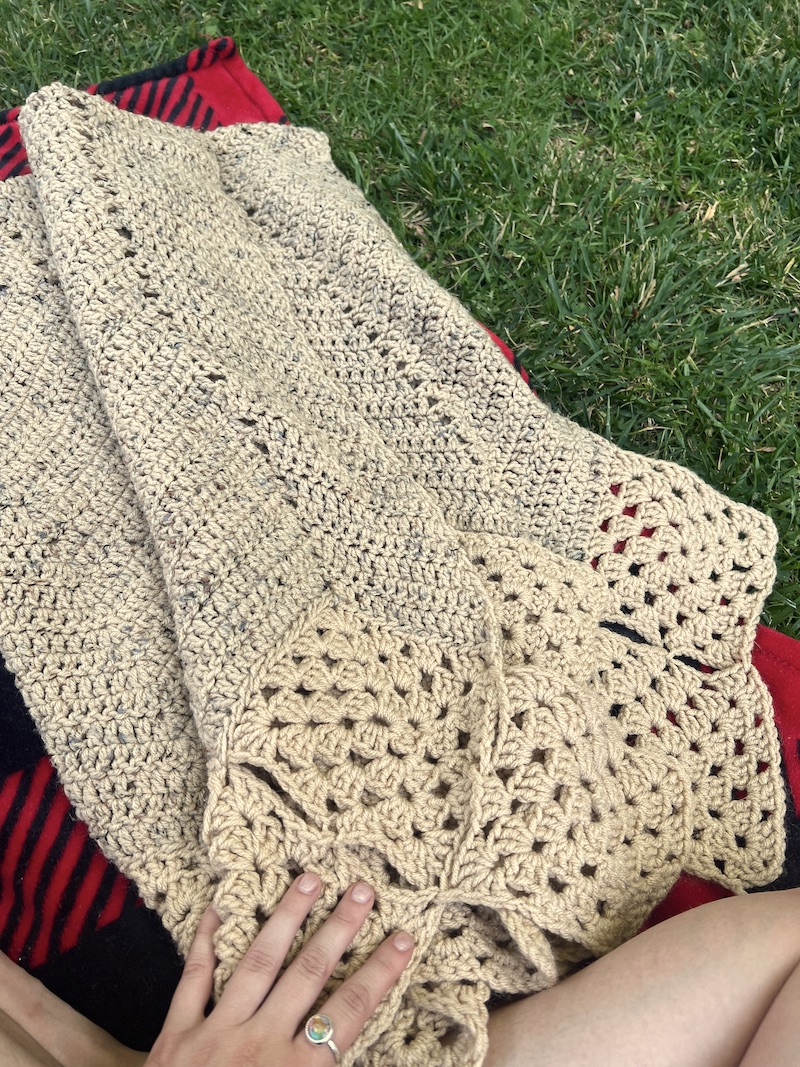
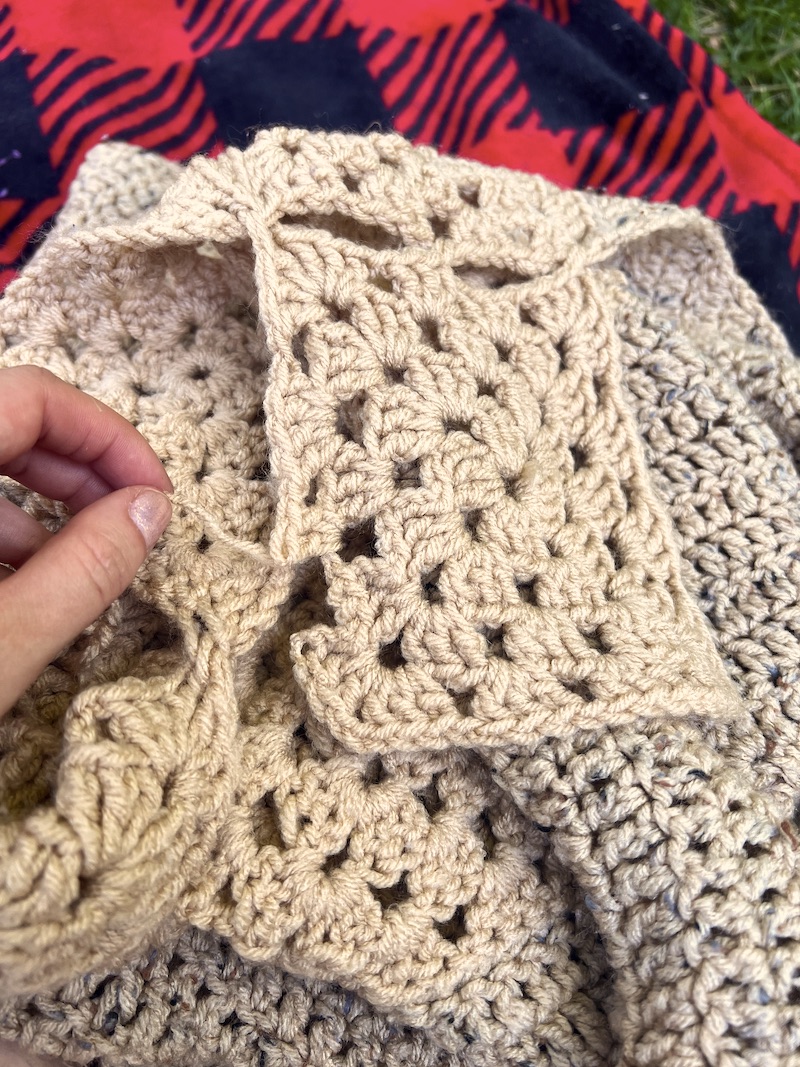
The metaphorical beauty of refashioning something old and ugly into something meaningful is not lost on me. And to be doing it with crochet, a medium that’s been intertwined throughout my life, feels only right.
I learned to crochet when I was very young, and it was an early practice in patience and accepting my mistakes. When all hope was inevitably lost (thanks to being too tight or too loose or too careless with my stitches), all I ever had to do was pull a single string and start over.
In the turmoil of my teenage years, crocheting quieted my mind like nothing else could. The meditation of counting stitches and sewing together squares was soothing no matter where I was—whether I was trying to avoid watching the screen during scary movies or daydreaming on long road trips while Alanis Morissette played on my discman.
Now I’m years out of practice, and my fingers fumble more than they used to. I have to start over each time I miscount my rows. The yarn keeps tangling in my purse, and I’m spending hours detangling the knots.
“I’m realizing how loss can be a bittersweet opportunity to start over—that with unraveling comes the chance to re-ravel.”
In all this, I’m realizing how loss can be a bittersweet opportunity to start over—that with unraveling comes the chance to re-ravel. That’s not to say it’s easy. I debated for weeks whether or not to deconstruct something my 15-year-old self had spent dozens of hours crafting. Much like I’ve spent the past several months trying to see clearly the self-isolation I mistook for protection. I’ve always wanted to keep things the way they were, the way I thought they’d always be. But things do change.
That’s not a bad thing. Undoing this blanket and turning it into something I love is a powerful reminder that nothing will ever change if nothing changes. I can’t sit around waiting for a blanket I made to become suddenly beautiful and functional in my life—I have to unravel, and I have to re-make.
I’m here now, in the early stages of re-making the blanket. I can’t help but think about the chain of people who’ve made me who I am, and also of how much agency I have in stitching together a life I love. I yarn over for a half double crochet and hope I have enough yarn from this dye lot to make the entire project. But I remind myself, again, to stay open to starting over. I’ve done it before.
As I make and re-make everything I’ve known to this point, I’m releasing the expectations of a certain outcome—I am creating something just for the sake of following my interests. I did not ask permission, I did not seek buy-in, and I will not pursue feedback. I’m just a girl, unapologetically crocheting and no one (but me) can tell me to stop. Just like I am a woman, unapologetically rebuilding my life and examining what is truly important. No one can tell me to stop taking up my own space.
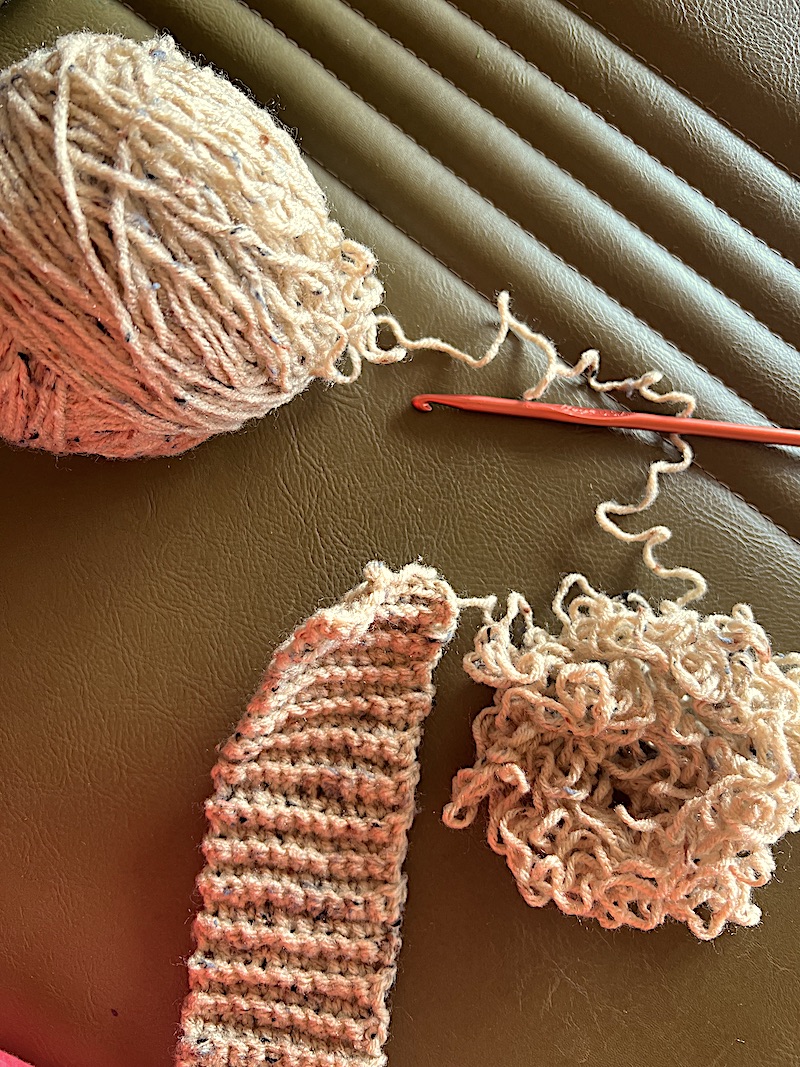
Crocheting is bringing me back to myself, a place I’ve yearned to be for so long.
Forever a lover of metaphor, I like to think I am the yarn. Infinitely re-shapeable, sometimes tangled, forever persistent as long as I am patient with myself. What’s broken can be re-tied, and loose ends can be repurposed—or they can fall away. I am weaving and looping through my own story, and there are no rules to follow.
Stitch by stitch, I’m working up a new beginning for this old blanket, and a new beginning for myself.
“I like to think I am the yarn. Infinitely re-shapeable, sometimes tangled, forever persistent as long as I am patient with myself. What’s broken can be re-tied, and loose ends can be repurposed—or they can fall away.”
Emily McGowan is the Editorial Director at The Good Trade. She studied Creative Writing and Business at Indiana University, and has over ten years of experience as a writer and editor in sustainability and lifestyle spaces. Since 2017, she’s been discovering and reviewing the top sustainable home, fashion, beauty, and wellness products so readers can make their most informed decisions. Her editorial work has been recognized by major publications like The New York Times and BBC Worklife. You can usually find her in her colorful Los Angeles apartment journaling, caring for her rabbits and cat, or gaming. Say hi on Instagram!
